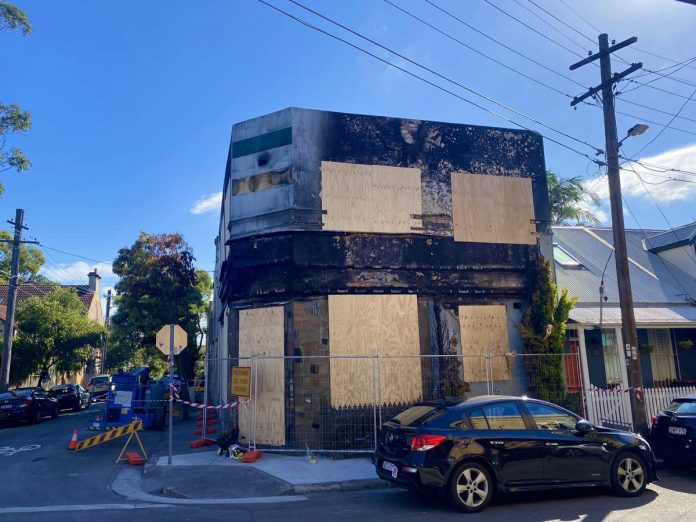On March 15 three men lost their lives in a fire at a 14-room boarding house on Probert Street, Newtown. Police have charged a former resident with three counts of murder and one count of destroying or damaging property.
The SSH grieves with family and friends of the deceased and injured, along with the owner and fellow residents, emergency workers, concerned neighbours and all for whom the tragedy raises questions about housing options and conditions for vulnerable people.
The owner of the property is not facing charges. The Inner West council has confirmed the property had a current fire compliance certificate and was registered with the NSW government.
Still, the event focuses attention on the precarious reality faced by those living in boarding houses. As Newtown Greens MP and Housing Spokesperson Jenny Leong argues, there is “need for more investment and support for people living in boarding houses and temporary accommodation”.
Boarding house residents share a kitchen and living space, rarely have their own bathroom, and for these reasons are technically considered homeless by the Australian Bureau of Statistics.
Most residents tend to be older men. About a third are on the disability pension, according to Homelessness NSW chief executive Katherine McKernan, who argues most people are only living in boarding houses due to the “dearth of social housing”. Rents can be higher than market rates.
Jenny Leong MP has called on the NSW government to acquire existing privately owned boarding houses, bring them up to a liveable standard, and run them as safe, secure, affordable and publicly owned social housing.
Ms Leong says: “The reason there is such demand for boarding houses in the inner city is because the public housing waitlist is so long, the private rental market is completely unaffordable, and there are vulnerable people who need access to social services and support.
“One of the biggest problems for boarding house residents is that they can be so easily evicted.”
Shelter NSW is also critical of the sector. Boarding houses are better than rough sleeping, chief executive John Engeler argues, but should not be regarded a first or adequate option.
In 2012, NSW introduced the Boarding Houses Act, which created a compulsory register and laws governing the rights and responsibilities of occupants and proprietors.
While local councils are responsible for regulating the Act, any fines go to the state government. Critics point to this impracticality.
In January this year, the government introduced changes that would require new boarding houses to be “affordable” and run by community housing providers for 10 years.
Ms Leong says: “The government has acknowledged the problem with the current boarding house situation, but these requirements do not apply retrospectively.”
Shelter NSW proposes reforms whereby only community housing providers have rights to run boarding houses, whether new or existing houses and for whatever period – with support staff and regular safety inspections.
Chris Martin, a housing policy expert at UNSW, agrees. He would like to see an accreditation regime to regulate who can operate boarding houses.
“[Boarding house operators] are involved in managing relations between multiple people in shared space, which calls for a higher order of skill and capability than individual landlords,” Mr Martin says.
Paul Adabie, of the Newtown Neighbourhood Centre, which provides in-reach social services to many boarding house residents in the area, backs the idea of a licensing regime.
“I really think boarding houses should be inspected a bit more often,” Mr Adabie says. “There should be more stringent rules applied.”
Newtown Neighbourhood Centre has launched an appeal to raise funds to directly benefit residents displaced by the boarding house fire. Donations can be made here: https://supportboardinghouseresidents.raisely.com




